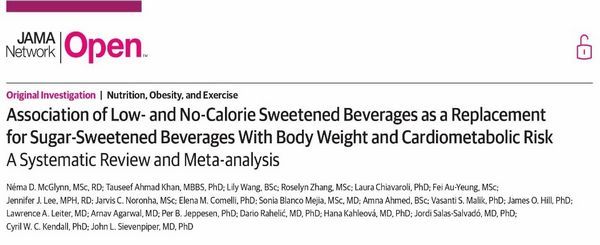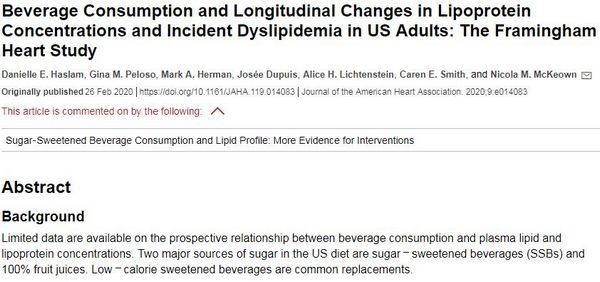According to the data of the just past 5.11 World Obesity Prevention Day, more than half of the adults in my country are overweight or obese, and the weight problem has become a public health problem affecting the health of the whole people. With the unhealthy development of high sugar, high fat and high salt, especially high-sugar beverages such as milk tea, cola, and fruit juice are eroding public health.
In March of this year, a study published in the journal JAMA Network Open showed that researchers compared and summarized 17 clinical trial data and found that after drinking low-calorie/0-calorie sugar-free beverages instead of sugar-sweetened beverages , body weight, BMI, body fat ratio and liver fat decreased significantly. In other words, switching to low-calorie/0-calorie sugar-free beverages can not only lose weight, but also reduce the risk of cardiovascular metabolism. The results of this study provide a new idea for healthy intake of beverages for sweet-loving people.

It is no secret that “a high-sugar diet can lead to obesity”. Previous studies have shown that compared with carbohydrates and fats of the same calorie, sugar stays in the stomach for a very short time, and the hunger level is higher after a brief feeling of satiety. More than ever. In addition, if the human body consumes excessive sugar in a short period of time, such as drinking high-sugar beverages, eating sweets, etc., the rapidly raised blood sugar will produce a large amount of insulin, and the remaining energy will be immediately converted into fat for storage. The impact of sugar intake on body weight and visceral fat can be imagined.
In recent years, the types of low-calorie and 0-calorie drinks have been expanding. Under the background of “half of the population being overweight”, the sugar-free track has ushered in a blowout period. Similar to the research results published in JAMA Network Open, in micro On social apps such as Bo and Xiaohongshu, people who lose fat and manage their weight often share their ideas of reducing sugar. Many people have said that after replacing drinks with low-calorie, 0-calorie sugar-free drinks, sugar intake is reduced The reduction in calorie intake brought about naturally shows a downward trend in body weight, with a weight loss of 7 catties in two weeks. “Drinking thin” has become another way for young people to get rid of obesity. Not only that, in addition to weight loss, reducing sugar intake will also protect the body from the risk of developing metabolic and cardiovascular diseases.

Previously, a study published in JH by researchers from Tufts University, Boston University School of Public Health and Duke University School of Medicine showed that compared with people who did not drink or drink less sugar-sweetened beverages, the daily intake of sugar-sweetened beverages Dyslipidemia was significantly increased in the sugar drink group, and cholesterol and triglyceride levels fluctuated significantly, and changes in these two values meant a significantly higher risk of heart disease.

With the release of various scientific research results, the weight problem caused by “sugar” has long gone beyond the scope of numbers and has become a prelude to various chronic diseases. In recent years, the consumption of beverages has continued to rise, and the branch of sugar-free beverages has shown an upward trend year by year. From the side, the public’s health needs have increased, and the obsession with sweetness still persists. Previous studies have said that humans’ obsession with sweetness began in ancient times, and the public’s health awareness and sweetness habits drove technology to constantly seek substitutes for sucrose. When erythritol, xylitol, stevia and other natural sweeteners As medicines have come into the public eye, sugar-free beverages have become a compulsory course for contemporary people to manage their weight. Behind the low-calorie and 0-calorie diets not only contains technological progress, but also shows that modern society is moving towards health for the diverse needs of consumers.